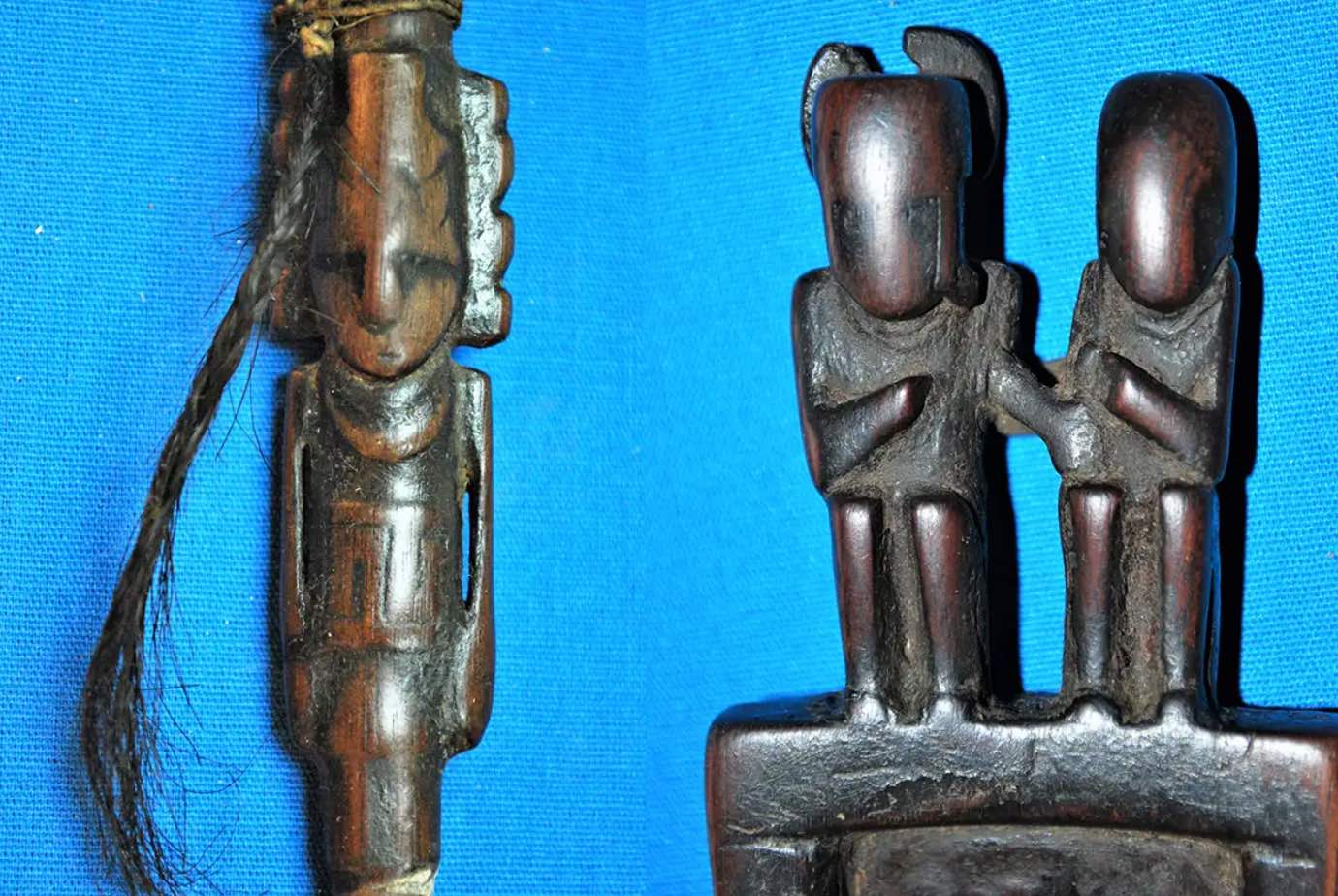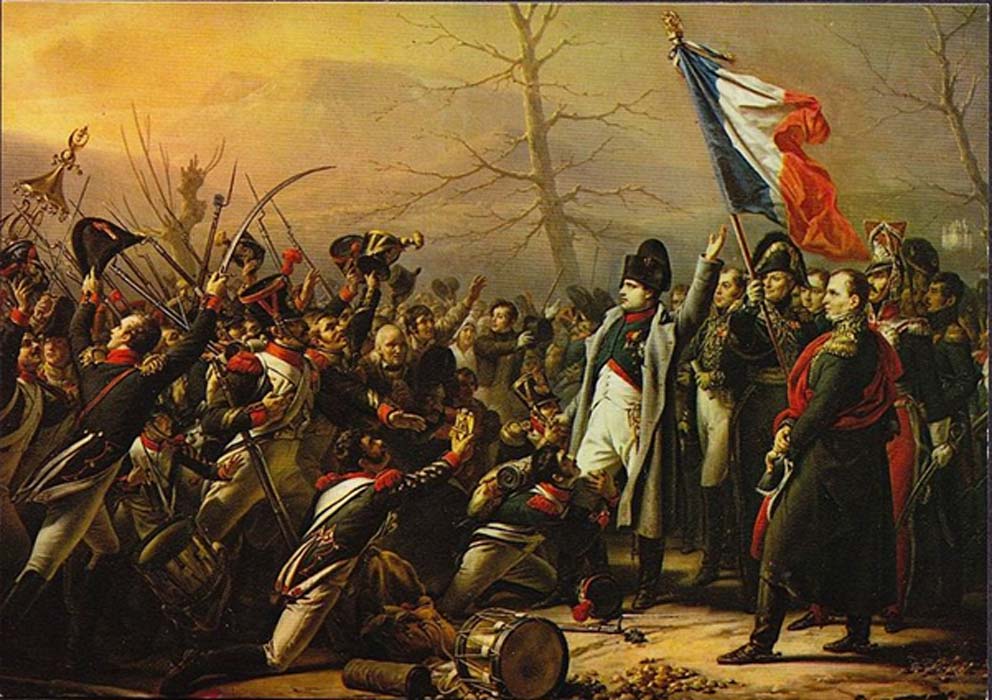via the OUP blog by Steven Carlip

“Solar Eclipse” by Taylor Smith. CC0 via Unsplash.
“Lights all askew in the heavens”, read the New York Times front page, “Men [sic] of science more or less agog”. The Times of London was more decorous: “Revolution in science. Newtonian ideas overthrown”.
The confirmation of Albert Einstein’s new general theory of relativity on the 29th of May 1919 made headlines around the world. Arthur Stanley Eddington‘s measurement of the gravitational deflection of starlight by the Sun was a triumph of experimental and theoretical physics. Scientists are good at celebrating triumphs. Sometimes we’re a little too good – students can be left thinking that one crucial experiment is all it takes to make or break a theory. So it’s worth using this anniversary as an occasion to reflect on how science advances.
Continue reading
==============================
via Boing Boing by David Pescovitz

In a Bolivian rock shelter likely used 1,000 years ago for religious rituals, archaeologists found a collection of drug paraphernalia that still contains traces of psychoactive plants. A pouch made from three fox snouts likely contained a stash of leaves and seeds.
Continue reading
==============================
via Ancient Origins by Wu Mingren

Napoleon's Return from Elba, by Charles Auguste Guillaume Steuben. Napoleon walk between the two forces and said if they were to kill their emperor; they were to do it now. Chauvinism was originally a term applied to veteran soldiers who served under Napoleon. Source: Public Domain
In the modern world, a chauvinist is a person who has “excessive or prejudiced support for one's own cause, group, or sex”. Before this, the word ‘ chauvinism’ had a narrower scope, and was used specifically to indicate an “excessive or aggressive patriotism”. Even earlier still, the word was applied to the devoted veteran soldiers who served under Napoleon.
Continue reading
==============================
via ResearchBuzz Firehose: Mohamed Zaki at Reuters
At St. Catherine’s Monastery at the foot of Egypt’s Mount Sinai, the silence in the library is broken only by low electrical humming, as an early manuscript is bathed in green light.
A team from Greece are photographing thousands of fragile manuscripts, including some of the earliest copies of the Christian gospels, using a complex process that includes taking images in red, green and blue light and merging them with computer software to create a single high-quality colour picture.
There is a tangible sense of urgency to the mission.
Continue reading
==============================
via Arts and Letters Daily: Armand D’Angour in AEON

Detail from Socrates Dragging Alcibiades from the Embrace of Aspasia (1785) by Jean-Baptiste Regnault. Louvre, Paris. Courtesy Wikipedia
Socrates is widely considered to be the founding figure of Western philosophy – a thinker whose ideas, transmitted by the extensive writings of his devoted follower Plato, have shaped thinking for more than 2,000 years. ‘For better or worse,’ wrote the Classical scholar Diskin Clay in Platonic Questions (2000), ‘Plato’s Socrates is our Socrates.’ The enduring image of Socrates that comes from Plato is of a man of humble background, little education, few means and unappealing looks, who became a brilliant and disputatious philosopher married to an argumentative woman called Xanthippe. Both Plato and Xenophon, Socrates’ other principal biographer, were born c424 BCE, so they knew Socrates (born c469 BCE) only as an old man. Keen to defend his reputation from the charges of ‘introducing new kinds of gods’ and ‘corrupting young men’ on which he was eventually brought to trial and executed, they painted a picture of Socrates in late middle age as a pious teacher and unremitting ethical thinker, a man committed to shunning bodily pleasures for higher educational purposes.
Continue reading
==============================
via Interesting Literature
The best Kipling poems selected by Dr Oliver Tearle
Rudyard Kipling (1865-1936) was a tireless experimenter with the short story form, a novelist, a writer who could entertain children and adults alike with such books as The Jungle Book, Plain Tales from the Hills, The Just So Stories, Puck of Pook’s Hill, and countless others. But as well as being a prolific author of fiction, Rudyard Kipling was also a hugely popular poet. But what are Kipling’s very best poems?
Continue reading
Unusually for a collection I have actually read all of the ten poems Dr Tearle thinks are the best. And what is more I can probably still recite at least two of them in part.
==============================
via Ancient Origins by Jim Willis

Phoenician ship carved on the face of a sarcophagus. 2nd century AD ( Elie Plus / CC BY-SA 3.0 )
Of all the seafaring civilizations who, to our knowledge, first explored the vast oceans, none are more mysterious than the ancient Phoenicians. How far did their voyages take them? What lands did they discover and explore? How did they navigate? What forgotten influence did they have upon the history of the world? And most importantly, where did they come from?
Continue reading
==============================
via The National Archives Blog by Claire Kennan

Image of ‘Jack Tar’ (a common term for sailors) by Harry Payne, 1893. Catalogue reference: COPY 1/108/436
Let those who have never seen a ship of war, picture to themselves a very large and very low room with 500 men and probably 300 or 400 women of the vilest description shut up in it, and giving way to every excess of debauchery that the grossest passions of human nature can lead them to […]
At a time when the health of Britain’s armed forces was crucial if they were to continue to control the Empire, scenes such as the one described above were causing great alarm within the government. Between 1864 and 1869 three laws – which became known as the Contagious Diseases Acts – were passed in an attempt to prevent the spread of sexually transmitted diseases which were seen to be debilitating Britain’s army and navy. According to government sources, nothing short of the security of the nation itself was at stake.
Continue reading
==============================
via the OUP Blog by Felipe Fernández-Armesto

Shibuya Nights by Andre Benz. Worldwide Copyright License via Unsplash.
The past is a mess. To pick a path through the mire, historians have appealed to providence, progress, environmental determinism, class struggle, biology and fate. No explanation has worked – so far. But try shifting perspective: look for the broadest possible context, the most suggestive comparisons. Climb the cosmic crow’s nest. Imagine what history might look like from an immense distance of time and space, with objectivity we cannot attain. The Galactic Observer – I suggest – would notice some of the other cultural creatures with whom we share our planet. “You,” she will say, “are a puny, short-lived species on a dreary little rock. But by comparison even with other very similar species, you have an amazing range of culture: vastly, astonishingly more ways of living, getting food, communicating, worshipping and dealing with each other.”
Continue reading
==============================
via Interesting Literature
More properly known as Ariel’s song from The Tempest, ‘Full fathom five thy father lies’ is about Ferdinand’s father, who is believed to have been the victim of a shipwreck and lie at the bottom of the ocean in Shakespeare’s play. We won’t say anything further about this here as we don’t want to offer any spoilers for those who haven’t read or seen the play, but wanted to share this song here because it is so well-known and yet not necessarily always carefully read. For instance, although it’s often known as ‘Full fathom five thy father lies’, the song actually begins quite differently…
Continue reading
No comments:
Post a Comment